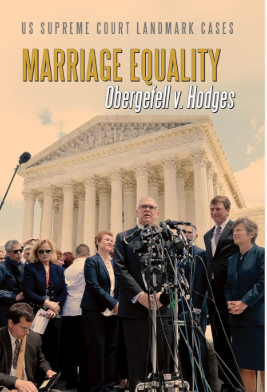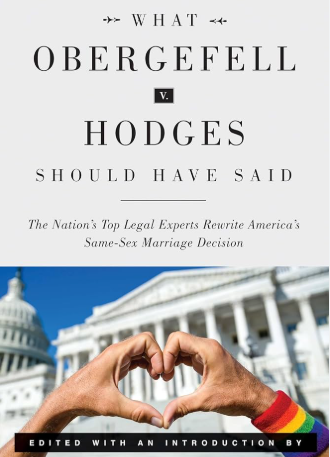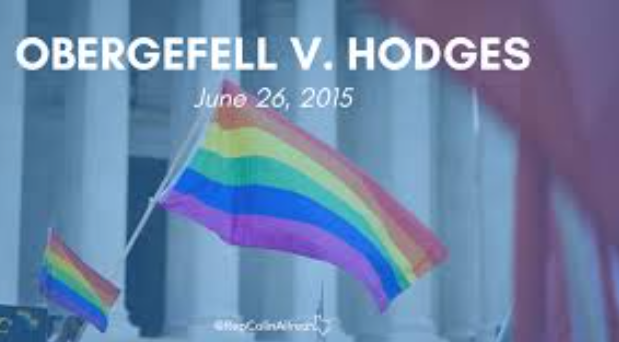In a historic and groundbreaking decision, the U.S. Supreme Court ruled on June 26, 2015, in Obergefell v. Hodges, declaring that state bans on same-sex marriage, as well as the refusal to recognize same-sex marriages legally performed in other states, were unconstitutional. This 5-4 ruling fundamentally transformed the landscape of marriage equality in the United States, affirming the constitutional right of same-sex couples to marry. As the case gains renewed attention, questions arise over its potential return to the Supreme Court.

The Legal Case That Changed Marriage Equality in America
The Obergefell v. Hodges case was a consolidation of multiple challenges to state bans on same-sex marriage. The petitioners argued that the refusal of states to grant marriage licenses to same-sex couples, and their refusal to recognize legal marriages performed in other jurisdictions, violated the Due Process Clause and the Equal Protection Clause of the Fourteenth Amendment. In a pivotal moment in civil rights history, the Supreme Court’s majority ruled that same-sex marriage is a fundamental right protected by the Constitution, ensuring that all citizens, regardless of sexual orientation, have the right to marry.
This decision, often considered a milestone in the fight for LGBTQ+ rights, was met with both celebration and opposition across the country. Supporters hailed the ruling as a monumental victory for equality, while opponents expressed deep concern about the potential impact on religious freedoms and traditional values.
Key Aspects of the 2015 Ruling
The majority opinion, written by Justice Anthony Kennedy, underscored that the right to marry is a core liberty protected by the Constitution, and denying that right to same-sex couples is discriminatory. “The Court’s decision found that marriage is a fundamental right, deeply rooted in the nation’s history and traditions,” Kennedy stated. The ruling also emphasized the dignity of same-sex couples, asserting that denying them the right to marry harms their personal and social identity.
The Obergefell v. Hodges decision struck down laws in Ohio, Michigan, Kentucky, and Tennessee, but its implications were felt nationwide. Following the ruling, all 50 states were required to recognize and issue marriage licenses to same-sex couples, and all same-sex marriages performed legally in other states were to be recognized.
Obergefell v. Hodges: Back to the Supreme Court?
As the landscape of LGBTQ+ rights evolves, many have wondered whether Obergefell v. Hodges could be revisited by the Supreme Court. In recent years, some conservative lawmakers and advocacy groups have sought to challenge the precedent set by the ruling, arguing that marriage laws should be left to the states and that the original decision overstepped the Court’s authority. With the makeup of the Supreme Court shifting in recent years, there has been growing speculation that future legal challenges could bring the case back to the Court.
Legal experts are divided on whether the Court would overturn Obergefell v. Hodges in light of changing societal views on same-sex marriage. While several states have passed laws to protect marriage equality, there are concerns that changes in the Court’s ideological balance could reignite debates over the issue. Conservative groups argue that the 2015 decision was based on judicial activism rather than constitutional interpretation, and some have called for a reevaluation of the ruling’s implications.
What Would Happen if Obergefell v. Hodges Returns to the Court?
If Obergefell v. Hodges were to be brought back to the Supreme Court, its future would depend on several factors, including the Court’s current composition and the arguments presented. The Court could either reaffirm its 2015 decision, extending further protections for same-sex couples, or it could choose to revisit the constitutional principles involved and potentially undo some of the progress made in the years following the ruling.

For LGBTQ+ advocates, the specter of Obergefell v. Hodges being overturned is a deeply concerning thought. The case is considered a landmark victory in the long fight for equal rights, and any reversal would represent a significant step backward in the pursuit of marriage equality. On the other hand, conservative groups argue that a state’s right to define marriage should take precedence, particularly in light of evolving political and social values.
The Ongoing Legacy of Obergefell v. Hodges
Regardless of the potential for future challenges, the Obergefell v. Hodges ruling continues to stand as a cornerstone of the nation’s legal framework surrounding marriage equality. The decision has empowered millions of same-sex couples across the United States to legally marry, offering them the same rights and protections as heterosexual couples.
As society continues to advance toward greater inclusivity, the implications of Obergefell v. Hodges are still being felt. Its legal impact has influenced everything from tax benefits and inheritance rights to the fight for adoption rights and anti-discrimination protections for LGBTQ+ individuals.
Conclusion: The Future of Same-Sex Marriage in America
While Obergefell v. Hodges remains a defining moment in the history of the U.S. Supreme Court, the question of whether the case will return to the highest court in the land looms large. As the nation continues to grapple with questions of civil rights, the legacy of this landmark ruling will likely continue to shape the debate around marriage equality for years to come.
For now, Obergefell v. Hodges stands as a testament to the progress made in securing equal rights for all Americans, but its future remains uncertain as legal challenges persist and societal debates unfold.














